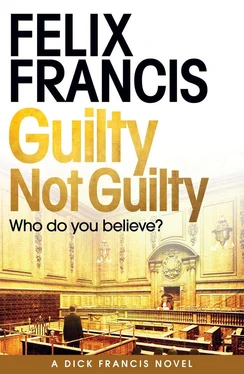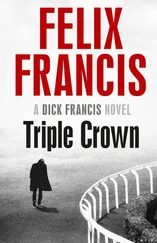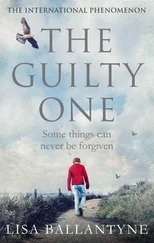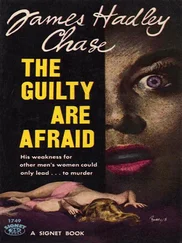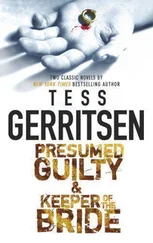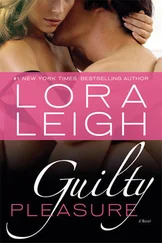‘I object to being called a liar,’ he said haughtily. Then he turned to the bench with his nose held high in an arrogant pose. ‘Your honour,’ he said, addressing the coroner incorrectly, ‘I am an officer of the High Court and I take severe exception to having my name blackened in such a manner by that man.’
Sue me, then, I thought. That will give me a chance to prove his lies.
I sat back down and the coroner had the good sense to excuse Joe from the witness box and recall DS Dowdeswell.
But my troubles weren’t over. Far from it.
‘Now, Sergeant,’ said the coroner, clearly relieved to be getting the inquest back on track. ‘I am sure I don’t have to remind you that you are still under oath.’ The detective nodded at him. ‘Good. Before I deal with the pathologist’s interim report, could you please give us a brief update on the progress of the police investigation?’
‘Yes, sir,’ said the DS. ‘The police are treating the death of Mrs Gordon-Russell as one of murder and, as such, a murder inquiry incident room has been set up at Banbury Police Station under the leadership of DCI Priestly.’
The coroner wrote it all down. ‘Has it not been reported in the press that an arrest has been made?’
‘Yes, sir,’ replied the detective. ‘A forty-year-old man was arrested yesterday morning on suspicion of murder. However, at this time, there is insufficient evidence to charge the individual so he has been released under investigation.’
As he spoke, the detective sergeant stared straight at me from the witness box and no one in the courtroom, nor anyone in the public gallery, was left in any doubt about who was the forty-year-old individual concerned. Those sitting near to me shifted away slightly, as if too close a proximity might cause them to be contaminated.
‘But we continue to search for and examine the evidence and we are hopeful of tabling charges against the man in the near future.’
It wasn’t a hope I shared.
‘Thank you, Detective Sergeant,’ said the coroner. ‘Have you anything else to add at this time?’
He hesitated for a moment and I wondered if he was going to ask the coroner if he could arrest me for contempt of court but then he shook his head. ‘No, sir.’
‘Then you are excused.’
The DS left the witness box but continued to stare up at me as he walked back to his place in the body of the courtroom.
‘Next I come to the post-mortem results,’ said the coroner. ‘Dr Nicholas Brewster, the Home Office pathologist who performed the examination, will attend the full hearing as and when that is convened. However, for the purposes of the official recording, I will read out loud his interim report.’
He lifted a single sheet of paper from his desk.
‘Having been informed by Thames Valley Police that a suspected murder victim had been found, I attended the scene at a house in the village of Hanwell, Oxfordshire, at eleven-thirty a.m. The body was that of a female aged approximately forty years of age. I confirmed that life was extinct and conducted an initial examination in situ, including recording the core temperature of the deceased.
‘This temperature, plus the fact that rigor mortis was already detectable in the eyelids, neck and jaw, indicated that death had probably occurred between two and eight hours previously. General lividity of the body, that is the pooling of the fluids after death due to gravity, indicated that the victim had likely died where she was found.
‘I had the body removed to the mortuary at the John Radcliffe Hospital in Oxford where I conducted a full post-mortem examination.
‘An external inspection of the corpse showed considerable pinpoint haemorrhaging, known as petechiae , in both the skin and in conjunctiva of the eyes, a clear indication that asphyxia was the likely cause of death.
‘Dissection and removal of the larynx, with the tongue attached, showed that the hyoid bone was fractured and that there was evidence of contusion haemorrhage in both the superficial and deep musculature of the neck, all positive indications of strangulation, and something that was in keeping with the deceased having been found with a ligature still in place around the neck. In addition there were several abrasions on the neck consistent with damage due to finger and thumbnails and, from the angle of the wounds, they were most likely the nails of the victim fighting to remove the ligature. Skin found under the nails matched that of the deceased.’
The coroner paused and took a drink of water and I realised what Douglas had meant about the body being considered as an ‘it’ rather than a ‘she’. The post-mortem examination of Amelia was not something that was easy for me to think about.
‘I conclude that, subject to the results of various toxicology tests yet to be received, the deceased died from asphyxia as a consequence of being strangled by pressure to the neck. This pressure created an obstruction of the jugular veins, causing a backup of venous blood in the head that would, within a minute or two, have resulted in passive congestion within the vessels of the brain. This, in turn, would have cut off the supply of oxygen to the surrounding tissues, leading to unconsciousness, depressed respiration and, eventually, to death.’
The coroner laid the piece of paper down on his desk and looked out at the courtroom.
‘There will be an opportunity to ask questions of Dr Brewster at the full hearing, but does anyone have any comments to make at this time?’
Nobody did.
I was trying to come to terms with the knowledge that it had taken ‘a minute or two’ for Amelia to become unconscious and how she had been so desperate that she had dug her own fingernails into her neck while fighting for her life.
How awful that must have been for her.
‘At this point,’ said the coroner, ‘I will adjourn these proceedings until the full inquest, to be heard at a date after the conclusion of any criminal proceedings.’
As he spoke the last part, he looked directly at me.
‘All rise,’ shouted the usher.
I tried to slip away from the inquest as quietly as I’d arrived by employing the pull-my-cap-down-over-my-eyes-and-keep-walking-regardless game, but it didn’t work, and the assembled media weren’t playing by the same rules.
‘Did you kill your wife?’ shouted one particularly belligerent journalist who stepped straight into my path.
It was a stupid question. I was hardly going to say ‘yes’ even if I had.
I ignored him, remembering what Simon Bassett had said about having one’s words distorted by the press, but the man had caused me to stop and now all the others gathered around me like a cackle of hyenas at a zebra carcass.
They all shouted questions at the same time.
I didn’t answer any of them but took tight hold of my suitcase and pushed my way through the rabble, only to come face to face with Joe Bradbury, which was certainly not on my planned agenda.
‘You’re a fucking disgrace,’ he shouted at me from a distance of about twelve inches, ensuring that all the media could hear. ‘You killed my sister and I can’t believe it that you’re not locked up.’
‘You’re the one they should lock up,’ I replied rather more quietly. ‘You killed her and you know it.’
‘Look in the mirror, loser. It was you that was arrested.’
He looked around to ensure the waiting press were all listening before pressing on with his vitriol.
‘You’re a hateful, hateful man that’s like a plague in our family. You made my sister mentally ill and now you’re driving me crazy too.’
‘What nonsense,’ I said, although I was quite hoping that I was indeed driving him crazy. It was no more than he deserved after the horrendous way he had treated his sister.
Читать дальше
